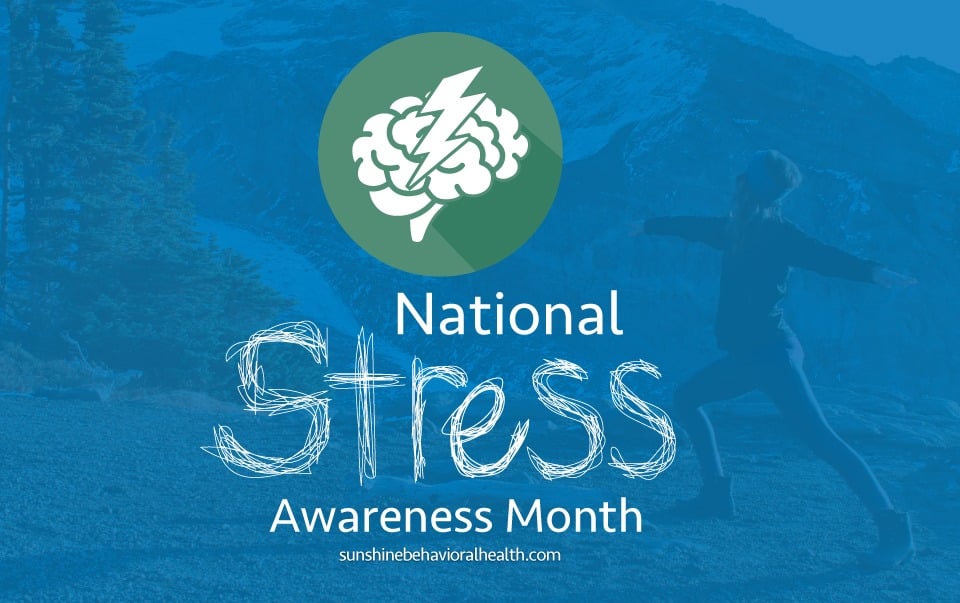
Stress Awareness Month: Healthy Ways to Fight Stress
Every April is Stress Awareness Month, and because of the outbreak of the COVID-19 virus, stress levels have been at an all-time high for many. Self-isolation combined with worries over illness, money, and trying to balance a new way of life have produced stress, emotional issues, and health conditions. Too much stress can be painful. It can ruin your life and sap the fun from everyday activities that you used to enjoy immensely. For some, self-medicating with alcohol or drugs is a way to cope with their problems, but that can wind up creating bigger problems and even an addiction. Before you resort to such drastic measures as taking an old pain pill or pouring a big glass of wine every day at 3 p.m., consider trying some other stress-busting techniques.Get some exercise
Numerous studies show that exercise is one of the best ways to fight excess stress. You don’t have to make it intense and exhausting, either. In fact, you might find that a 30-minute stroll is enough to calm your nerves and lower your heart rate. If walking isn’t your thing but you’re looking for some kind of activity, consider some of these options:- Dancing. Dancing for a few songs can be strenuous or easy, depending on how hard you dance. Plus, dancing is fun. You can find a plethora of dancing workouts to create a routine that you can change to provide variety.
- Gardening. Getting outside, planting flowers, taking care of your lawn, and growing plants in a container on your balcony can all help you stay active while you’re enjoying the benefits of getting outside and connecting with nature.
- Playing. It may sound childish, but playing, especially outside games, can improve your physical and mental health. Whether you’re playing tag with your kids or softball with your friends, participating in games can be a great way to have fun and reduce stress.
Sleep more
Did you know that most Americans don’t get enough sleep? Excessive amounts of stress can contribute to sleeplessness, and a lack of sleep can actually exacerbate stress. Many experts say that people should aim to sleep seven to nine hours a night. But, if you can’t sleep, consider trying some of these sleep tips:- Avoid caffeine before you sleep. That 7:00 p.m. latte could be preventing sleep more than you realize.
- Develop a bedtime routine. Put down your phone or tablet. Instead, write in your journal, read for a bit, take a bath or shower, or do anything else to soothe you. These activities can send signals to your brain that it’s time to shut down and get some rest.
- Make your bedroom a sleep friendly space. Move your bills and workspace out of your bedroom and make rest and peace a priority. Choose comfortable bedding and rest-inducing lighting so you associate your bedroom with sleep.
- Get activity. Daily activity helps your body wind down and rest. It also helps to keep your circadian rhythms in check.
Other great ways to fight stress
There are many great ways to fight stress, and the best news is that you can do some of them anywhere, at any time:- Yoga. You don’t need to be a yoga master to enjoy the benefits of this practice. Try just a few poses to enjoy stress relief, increased flexibility, and strength.
- Deep breathing. It takes only a few moments to take a few deep breaths to calm yourself. You can use fitness apps to guide you through an exercise or two. Do this whenever you’re feeling stressed or overwhelmed.
- Meditation. Just like with yoga, you don’t have to be a master meditator to reap its benefits. You can take a few quiet moments to focus on your breathing. To take it further, you can try one of the many guided meditations available online.
A Message From Our CEO
Medical disclaimer:
Sunshine Behavioral Health strives to help people who are facing substance abuse, addiction, mental health disorders, or a combination of these conditions. It does this by providing compassionate care and evidence-based content that addresses health, treatment, and recovery.
Licensed medical professionals review material we publish on our site. The material is not a substitute for qualified medical diagnoses, treatment, or advice. It should not be used to replace the suggestions of your personal physician or other health care professionals.





